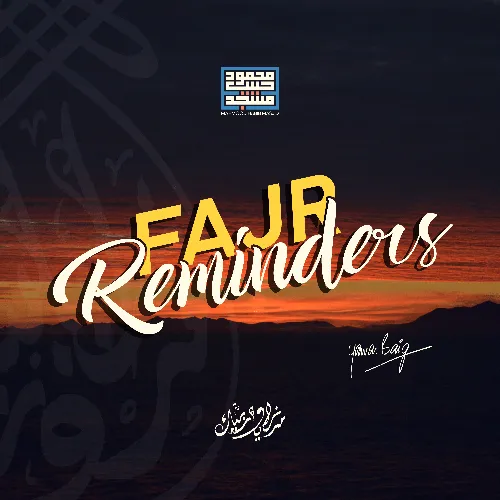GBK… What is his legacy?
- Author
- Fajr Reminders - Mahmood Habib Masjid and Islamic Center
- Published
- Tue 26 Aug 2025
- Episode Link
- https://mhmic.org/fajrreminders/gbk-what-is-his-legacy/
Auto-generated transcript:In the name of Allah, the Most Gracious, the Most Merciful.
All praise is due to Allah, the Lord of the worlds, and peace and blessings be upon the honour of the messengers and messengers.
Muhammad is the Messenger of Allah, peace and blessings be upon him, and upon his family and companions.
Peace be upon him, and upon his family and companions.
I have this news this morning of the passing away of my very dear friend,
Zoya Siddin Babu Khan Sahib.
Gaiyaz Bhai and I go back 25 years.
I first met him when I returned from America in 2000,
and now 25 years later he passed away.
And as I was, I got the news just as I was about to leave,
very early in the morning for my walk,
and as I walked, I was thinking to myself,
what are the memories that she left behind?
Because we are remembered by the memories we leave behind,
and that's why when we live in this world,
and when we act, and we speak, and we do things, and we invest,
and we build, or we destroy, and we do the opposite of all that,
we must ask ourselves one question, which is,
what do I need?
What do I want to be remembered for?
What do I want to be remembered for?
And when I think of Gaiyaz Bhai,
the first thought that came to mind was a conversation that I had with him,
maybe 20 plus years ago,
when we were traveling somewhere on one of the Zakat trusts,
this was before the formation of FEED,
trips to Zakat trust trips, to distribute scholarships.
And I asked him, I said, why did you start doing this work?
What led to it?
He said to me something which is very simple,
but from that day to this, I asked myself,
we go through the same thing, how come we don't seem to,
see things the way he saw them?
He said to me,
I realized that one day I will die.
Now, the question I asked myself, and the question I have asked those who listen to me many, many times before,
I said, go stand in front of a mirror, look at your face in the mirror,
and say to yourself, one day I will die.
And I said, I will die.
And if you can't say that to yourself, and you look at yourself in the mirror,
and you say that I will never die, then you are a case for a psychiatric hospital.
But anyone who has any level of sense, any level of intelligence,
you will look at yourself in the mirror and say, one day I will die.
Now, the question is, what will be your legacy?
What will you leave behind?
What will you leave behind when you die?
And that's what it boils down to, because what you leave behind when you die
will either be something that you will be questioned for,
and if Allah does not forgive you, you will be punished for,
or it will be something which Allah has kept with him,
and it has grown with him,
and he will then present it to you.
With the growth, and with the rewards.
And this is the choice that is there with every single person of ours,
every single one, every single one of us, every single person.
So, what did Ghazaluddin Babu Khan leave behind?
I think there is one memory again in this context,
which stands out in my mind,
as a memory that describes his legacy.
And that memory is that he had set up this,
you know, he and Bashir bhai, his elder brother Bashir bhai,
again, a remarkable human being.
He was again a very dear friend of mine,
and I was honored to be part of a group that he would invite every month
to have lunch in Nizam Club.
And it was a diverse group of people.
People with different schools of thought,
different beliefs, different political positions, and so on.
And he deliberately invited all of us so that we could have conversations.
And we would talk about subjects which were,
on which we obviously didn't always agree upon,
but it was a very civil, very,
lovely and very rewarding conversation.
And also some excellent food.
And he did this, you know, almost every month.
And I was one of the people in that group,
and I'm honored that he invited me.
He was again a remarkable human being,
because he was a politician with principles.
